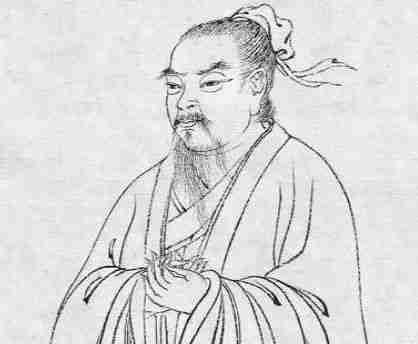In this write-up, we will explore the life of Han Fei Tzu, who was considered one of the most influential Chinese statesmen and a philosopher. Up to date, he is valued as the main formulators of the Chinese Legalist philosophy and he is a great part of Chinese history and culture. Read on to learn more about Han Feizi.
Who was Han Feizi?

Han Fei, who was popularly known as Pinyin Hanfeizi, was the greatest Legalist philosopher in China and he greatly contributed to various political strategies used by different rulers in China. Along with a famous politician, philosopher, calligrapher, and writer of the Qin dynasty named Li Si, Han Feizi developed Xun Zi’s (Chinese Confucian philosopher) philosophy into the doctrine that is embodied by Legalism/the School of Law. As a representative of the Fa-chia (Legalist) school of philosophy, Han Feizi produced the final and the most readable expositions of the Legalist theories.
Along with that, Han Feizi was the prince of the ruling family of the Han dynasty during the end of the Warring States Period. Ironically, his advice was not heeded by the king of the Han dynasty at the time but was more valued by the king of Ch’in, who soon after ascending to the throne in 246 B.C was able to successfully conquer China and became the first emperor of the people’s republic of China. His work is collected in the 55 clearly explained chapters of the Han Feizi, which is the most important and only surviving source for legends from the Warring States Period.
Han Feizi – Life, Death, and Birth
As in the case of most early Chinese philosophers that lived during the Warring States Period, very little is known about Han Feizi’s life. Just as we mentioned earlier, Han was a member of the ruling family of the state of the Han. He was born around 280 B.C.E and during that time, the state of Han was considered one of the weaker states during the end phase of the Warring States Period in China. This was mostly because the state of Han was the smallest of all the Warring states, so there wasn’t an easy way for it to expand its territory and resources. Also, the state was greatly bullied militarily by its neighbors.
During this time, Han studied under Hsun-Tzu – the Confucian philosopher. After some time, Han slowly started developing a newer and different school of thought that seemed to be the most viable solution that could better solve the social and political problems that surfaced in the Han dynasty after the warring states period. Even better, he believed that his new philosophy could solve almost all issues that come up after the collapse of a feudal system. He then tried to share his philosophy and advice with his cousin, who was the king of the state of Han at the time. Unfortunately, his cousin felt as though Han Feizi’s ideas were absurd and they did not make much sense to him. This was mostly because Han was a habitual stutter and he seemed to have a slight speech impediment. When this happened, Han decided to put his ideas into writing so that anyone who came across his school of thought could understand what he was driving at better.
As he kept on writing, his works caught the attention of the king of the Qin dynasty, who then declared war on Han during the Warring period. The king of Qin then dispatched Han Feizi as a diplomatic envoy to Qin. When this happened, Han Feizi’s former fellow student – Li Si- was extremely envious of Han Feizi. Li Si then persuaded the King of Qin that Feizi was a terrible option for his political strategy because his loyalty would have probably been to the Han dynasty as his cousin was king at the time and that Han Feizi’s intelligence could possibly outdo the Qin king’s ability.
Immediately after that conversation, Li Si recommended that the king of Qin needed to accuse Han Feizi of some kind of treacherous offense and sentence him to prison. Unfortunately, Han Fei was accused of duplicity and was imprisoned for life. Li Si then went to the prison and convinced Han Feizi to commit suicide by drinking poison, which he did and that is how he died.
Han Feizi Belief
Han Feizi’s school of thought was more or less a political strategy which was more centered on the authority of the leader. He believed that the role of the leader was to maintain firm control within his territorial jurisdiction using three vital concepts, which are; the laws of the country, his authoritative position, and specific administrative techniques.
According to him, all the ruler needed to do was to create ideal laws that ensured that his government remains functional at all times. Legalism, in this case, assumed that every ruler acts according to one important principle: avoiding punishment while achieving maximum benefits. Based on this principle, the laws that are made should reward those that follow them and punish the wrongdoers. His philosophy was greatly adopted by the first king of Qin and Qin Shi Huang, who was the first emperor of China. Up to date, his ideas still play a role in government.
Han Feizi Quotes
Here are some of the popular Han Feizi Quotes;
‘I believe it is impossible to be sure of anything’
‘The object of rewards, is to encourage; that if punishments, to prevent. If rewards are high, then what the ruler wants will be quickly effected; if punishments are that heavy, what he does not want will be swiftly prevented’
‘A ruler makes use of the majority and neglects the minority, and so he does not devote himself to virtue but to law’
‘A filial son to his father can be a traitorous subject to his ruler’
‘If a ruler can get rid of private crookedness and promote the public law, his people will become secure, and his state will become well ordered’
‘The severe household has no fierce slaves, while it is the affectionate mother who has the prodigal son’
‘The intelligent ruler makes the law select men and makes no arbitrary appointment himself; he makes the law measure merits and makes no arbitrary judgment himself’
‘If you rely on political factions to promote men to office, the people will work to develop instrumental relationships and will not seek to be useful with regard to the law. Thus, a ruler who mistakes reputation for ability when assigning offices will see his state fall into disorder’
‘A ruler of men faces two possible misfortunes: if he employs the worthy, the ministers will use worthiness as a pretext to rob their ruler of his power, but if he promotes men recklessly, his affairs will be neglected, and he will not prevail’
‘Those who serve as ministers can be compared to hands: reaching up, they take care of the head; reaching down, they take care of the feet.
Han Feizi Book

His book- the Han Feizi- is one of the most popular ancient Chinese texts and it comprises a wide selection of detailed essays in the Legalist traditions on various theories of state power. It has 55 chapters, most of which date to mid-3rd century BC (the warring states period) and it is the only text of its kind to survive from then. The Han Feizi book is greatly valued for the fact that it has multiple anecdotes about pre-Qin China and the fact that it touches on several aspects such as diplomacy, administration, economics, and war. Supposedly, the book is also considered the most philosophically engaging books in China.